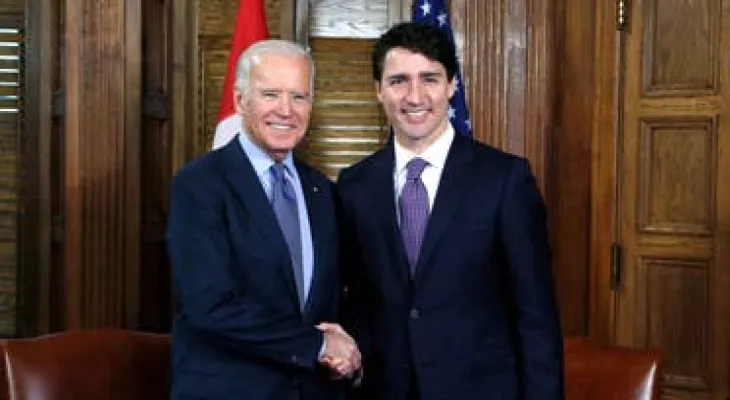Search here
Newspaper
Search here

Arab Canada News
News

Published: December 12, 2023
Although the 3% tax on digital services that Ottawa intends to impose on the Netflix streaming platform and other giant American internet companies starting January 1, 2024, angers many Americans, this issue was not important in the talks between US President Joe Biden and Canadian Prime Minister Justin Trudeau; on the contrary, according to the liberal leader.
"I think in all the conversations we've had with the Americans, President Biden never raised this issue with me, not even once, as a priority or as a direct concern," said the liberal government leader in a year-end interview with the Canadian Press Agency yesterday.
Trudeau confirmed that, nevertheless, he is ready to address this file, which is seen as a major point of contention by many American officials and stakeholders.
For example, the US Ambassador to Canada, David Cohen, warned in October of a "big battle" over the digital services tax that Canada intends to impose.
"I understand that Americans might not be very happy that we are going to do this, but we promised to do it," Trudeau added about his decision to impose the tax on foreign digital service companies.
The US President did not go to this extent with Trudeau in private talks, "even though I always have all kinds of answers ready to give him if he raised this issue," Trudeau explained.
It is worth mentioning that when his liberal team was re-elected in 2019 for a second government term, the first time leading a minority government, Trudeau had promised in the election campaign to ensure "that internet giants pay tax on the revenues they generate in Canada."
The liberal government initially expected that a multinational tax framework, at a rate of 3%, would be established after discussions with the Organisation for Economic Co-operation and Development (OECD) and the G20 countries.
As discussions extended, Ottawa set a deadline to impose the tax of January 1, 2024, to allow more time for global efforts to establish a broader multinational tax plan.
Thus, Trudeau's government indicated that this is the deadline to proceed on its own, similar to France and the United Kingdom.
Ambassador Cohen, as well as some members of the US Congress, also urged Canada to suspend its plan to give the OECD time to implement its roadmap, known in terminology as "Pillar One."
"We gave them several years to try to solve the problem and find a way that works for them and everyone," Trudeau said about the OECD, "(but they) were unable to do it. They tried."
Additional deadlines were granted multiple times within the OECD, as noted last month by Liberal MP Sophie Chatel, who worked within this international organization that includes 38 countries including Canada.
Canada also waited before moving forward on its own because "the Americans were saying ‘no, no, no, we have to do it with the OECD,’" Trudeau confirmed.
The collected tax will be retroactive based on the revenues generated on Canadian soil starting January 1, 2022, by these companies which are mainly headquartered in the United States.
Even without reaching an international agreement on the multinational framework, Canada must adopt a law to implement its decision to collect the mentioned tax starting January 2024.
The bill, called the "Digital Services Tax Act," is included in legislation allowing the implementation of measures announced by the federal government in the Economic Fall Statement.
This bill is still in the early stages of consideration by parliamentarians, and this process must be completed for the tax to become a reality.
Canada sees this law as a temporary measure pending a decision by the OECD that would respond to the reality in more than 100 countries.
Comments